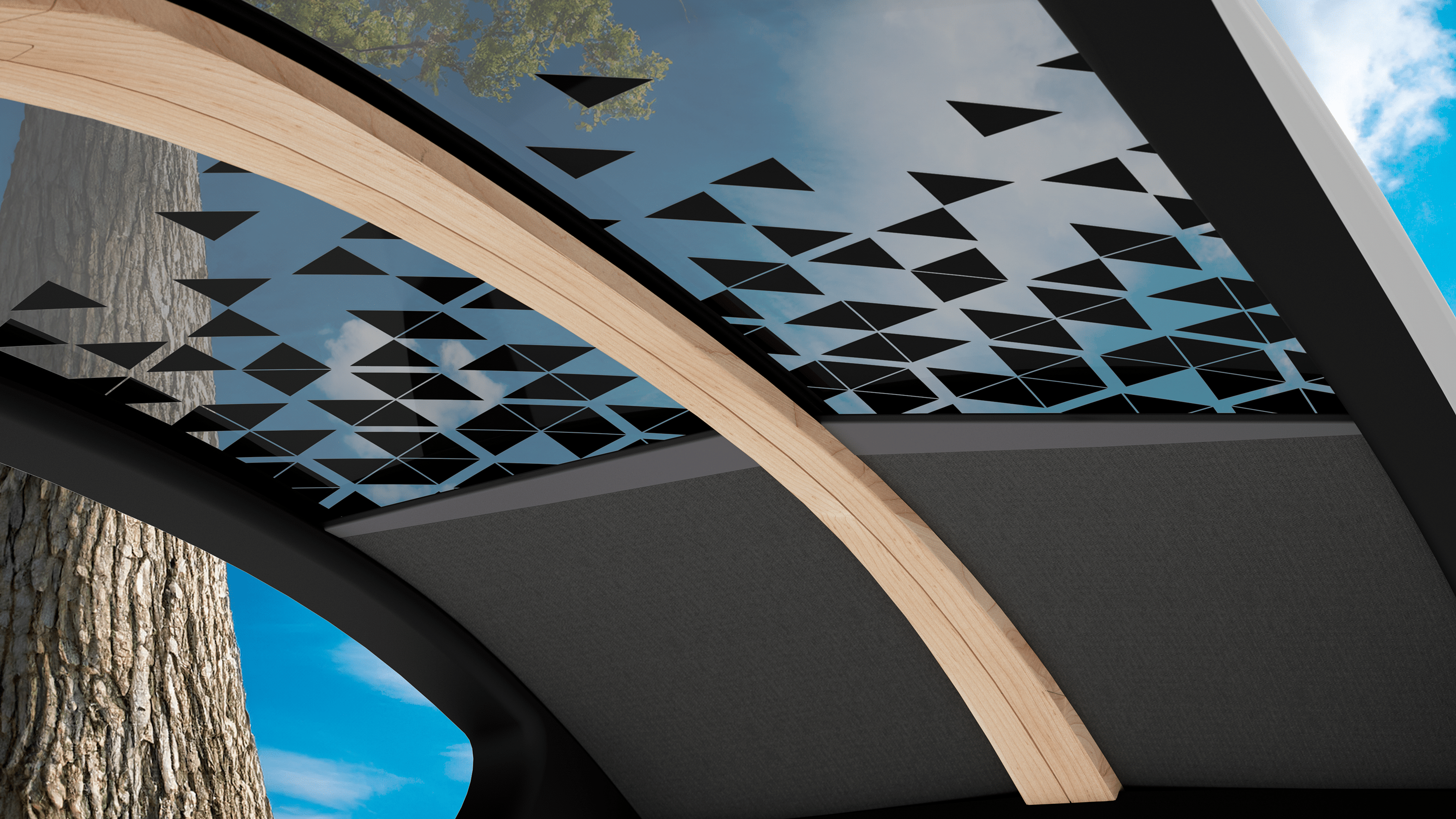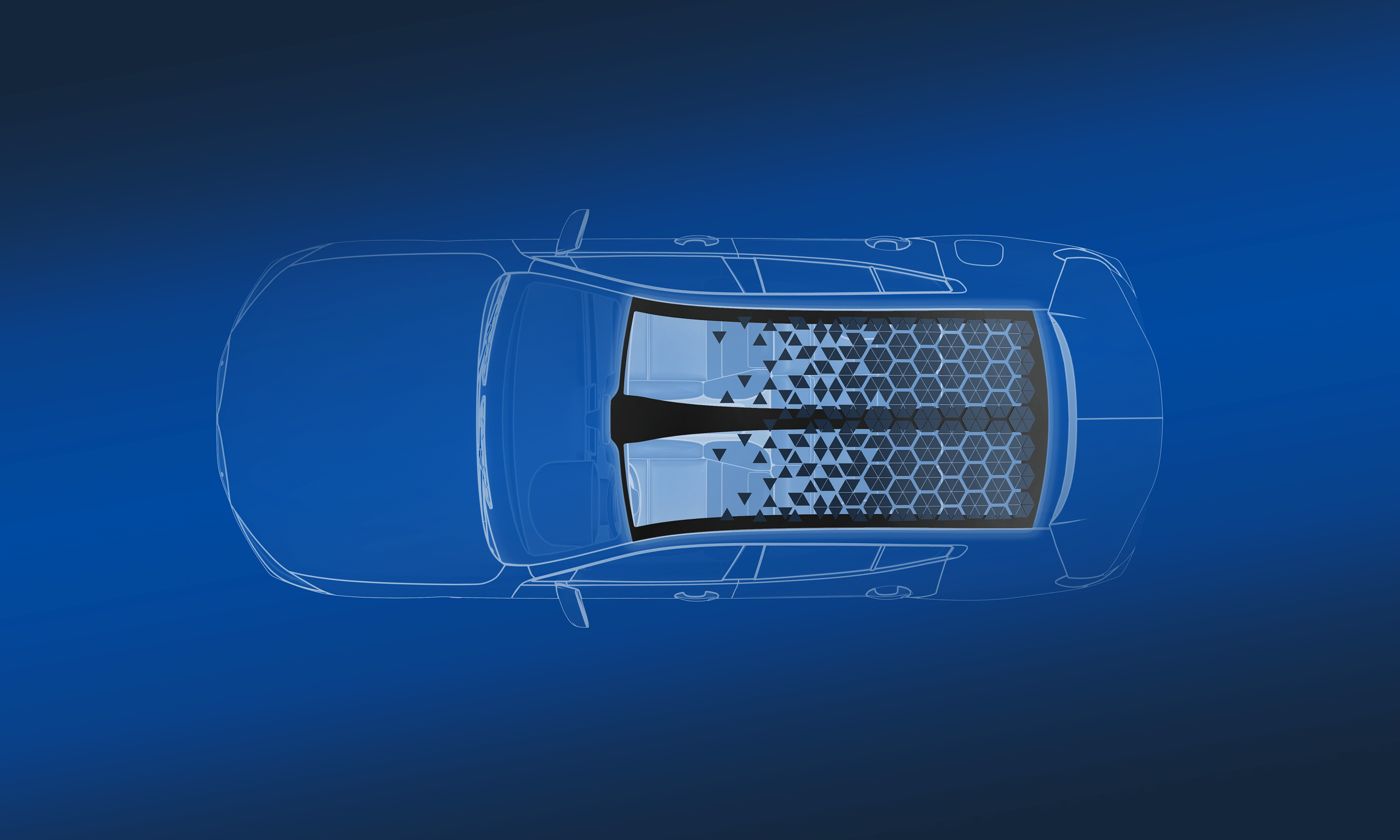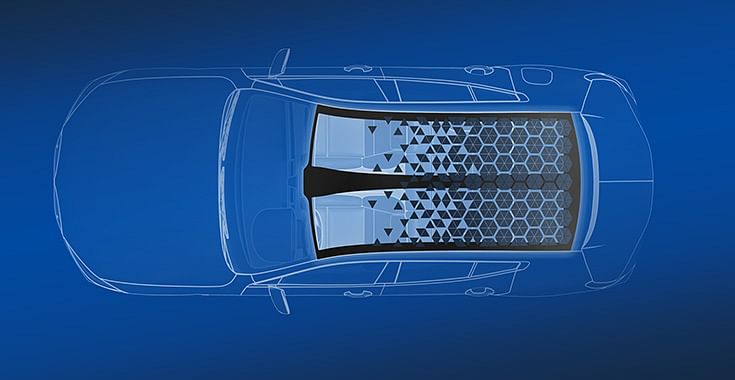Webasto develops new roof concept for sustainable mobility, less CO2e, and more range
The use of bio-mass balanced polycarbonate and sustainable plastics in ‘EcoPeak’ instead of aluminium reduces the weight of the roof system by up to 40% compared to conventional solutions, and ensures improved energy and fuel efficiency, and enhanced driving dynamics.
Webasto, the global market leader for roof systems, is pursuing broad-based, ambitious climate protection targets. Webasto sees potential for reducing the CO2e footprint not only in production and operation, but also in its products and is the first automotive supplier to present a roof concept that combines sustainability, innovation, and modern design with the ‘EcoPeak’.
The company primarily relies on bio-mass balanced and recycled materials and also uses solar cells to supply the vehicle with climate-friendly electricity.
The use of bio-mass balanced polycarbonate and sustainable plastics instead of aluminum reduces the weight of the roof system by up to 40 percent compared to conventional solutions. This not only ensures improved energy and fuel efficiency, but also increases driving dynamics. The product features, for example in terms of durability, remain at the usual high-quality level.

Intelligent use of light and shadow
The EcoPeak panel covers both the roof area and the rear window. This enlarged surface is equipped with solar cells that supply the vehicle with up to 350 kilowatt hours (kWh) of electricity per year. Depending on the vehicle and local climate conditions, this can equate to a mileage of around 2,500 kilometres. Another key feature of the EcoPeak is its integrated roller blinds. The fabric is made from recycled PET bottles.
Fifty percent less CO2e emissions
According to Webasto, the concept study shows that as a result of visionary design and the use of environmentally friendly basic components, approximately 50% fewer emissions are emitted compared to conventional roof systems.

 The ‘EcoPeak’ panel is equipped with solar cells that supply the vehicle with up to 350 kWh of electricity per year. Depending on the vehicle and local climate conditions, this can equate to a mileage of around 2,500km.
The ‘EcoPeak’ panel is equipped with solar cells that supply the vehicle with up to 350 kWh of electricity per year. Depending on the vehicle and local climate conditions, this can equate to a mileage of around 2,500km.
"Thanks to the enlarged surface area, our roof concept has a significant impact on the vehicle's overall CO2e footprint. As a market and innovation leader, we are using this concept study to show our customers the possibilities for future series applications. Together with them, we want to develop solutions that are an alternative to conventional roof systems and perfectly combine sustainability, functionality, and aesthetic design," says Jan Henning Mehlfeldt, Member of the Management Board and responsible for the global roof business at Webasto. "Considering recyclability enables the efficient reuse of materials, which reduces waste and prolongs the utility of resources.”
ALSO READ:
Webasto integrates sensors into panoramic sunroof for autonomous mobility
Webasto opens second sunroof plant in India, to increase capacity to 950,000 by 2027
RELATED ARTICLES
Autoliv Plans JV for Advanced Safety Electronics With China’s HSAE
The new joint venture, which is to be located strategically near Shanghai and close to several existing Autoliv sites in...
JLR to Restart Production Over a Month After September Hacking
Manufacturing operations at the Tata Group-owned British luxury car and SUV manufacturer were shut down following a cybe...
BYD UK Sales Jump 880% in September to 11,271 units
Sales record sets the UK apart as the largest international market for BYD outside of China for the first time. The Seal...






 By Autocar Professional Bureau
By Autocar Professional Bureau
 28 Sep 2024
28 Sep 2024
 5035 Views
5035 Views










 Ajit Dalvi
Ajit Dalvi




